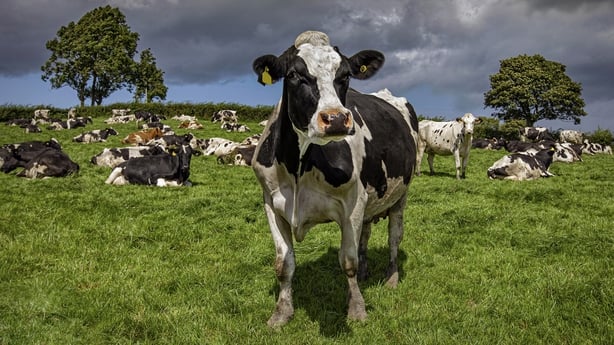Every year brings its challenges to the farming sector and there have been many over the last 12 months – income cuts, bad weather, regulatory pressure, emissions concerns and non-stop change kept farmers fully mentally and physically engaged in 2023.
Farming is one of the few ways of life directly impacted by the weather and from last spring to the end of the harvest, erratic weather patterns caused huge difficulty.
It was too wet when planting, too dry in April and May when crops were establishing. Then came July – the wettest on record – and weeks of torrential rain in September and October, which prevented harvesting.
“We could call it the worst year on record,” Bobby Miller, chairman of the Irish Grain Growers Group, said.
“It was a constant struggle with the weather the whole way through. Rarely has it happened that crops went unharvested. I can’t ever remember it happening but that’s what happened in places this year. The value of grain was down, the yield too – while the cost of inputs went up,” he added.
It wasn’t just tillage farmers that were affected. Livestock farmers too were forced to house cattle early, and rely on silage supplies sooner than anticipated. Silage cutting itself was affected.
The livestock sector also came under huge pressure over water quality and environmental impacts. That came to a head when Ireland’s Nitrates Action Programme fell foul of the rules on improving water quality.
Despite a hard fought battle that culminated in the European Commissioner for the Environment Virginijus Sinkevicius visiting Ireland, the upper nitrate derogation limit was cut for many farmers from the beginning of next year particularly affecting thousands of dairy farmers.
“This was a huge concern for us,” said outgoing IFA president Tim Cullinan.

“It was very disappointing the way it played out. We put forward credible proposals to protect the derogation but it was not accepted. It’s critically important we maintain the 220kg limit for the entire industry and the Minister has to be straight with farmers on this,” he added.
Mr Cullinan was also disappointed with widespread delays to farm payments during the year, delays that will now see some ACRES payments held over until next year.
The Minister for Agriculture said the delays came about due to the introduction of changes to scheme under the new CAP but the IFA president does not accept that explanation.
“Everyone knew we had a new CAP and our plan was agreed at the end of December last year and still some payments won’t be made until 2024. Farmers are depending on those payments coming on time and when they don’t it creates hardship,” he stated.
The now past president of the ICMSA Pat McCormack was also very disappointed with payment delays.
He campaigned on all the major dairy issues throughout 2023 and said that pressure on farmers to constantly change was a huge factor throughout the year.
“We produce food to ever higher standards, and yet we have to take more actions to draw down the same or less payments. We are being asked to do more for less,” he stated.
Complex scheme requirements are also costing farmers money as they need professional advice to comply.

“It’s a huge issue, when I graduated there was little talk of agricultural consultants. Now you have large numbers filling forms for farmers. Regulations require professional filling of forms. There are industries being built on the back of our industry and I am not sure if primary producers have the ability to stand much more. Many farmers are very disillusioned,” he said.
The disillusionment will be directly related to income and 2023 saw the farming sector crash back to earth after a record income year in 2022.
Average income dropped 44% this year, according to Teagasc figures. The reduction was mainly due to steep declines in dairy and tillage sector incomes.
Average dairy farm income fell 60% to €59000, while tillage farmer income was also down 60% to €30,000.
On a positive note however Teagasc is predicting an upturn in income again in 2024 by up to 30% The increase is expected as dairy prices are forecast to rebound and cereal prices are also expected to recover.
Beef and sheep prices will also improve although pig prices are expected to fall.
“After a year of extremely high farm input costs and some frustrating weather conditions, Irish farmers can look forward to some reduction in fertiliser, fuel and electricity prices in 2024,” Trevor Donnellan, chief economist with Teagasc said.
“Alongside an improvement in farm output prices, and assuming a more normal year for weather, farm incomes in grassland and tillage systems should see a welcome increase in Ireland in 2024,” he added.

Next year will also bring huge challenges for the farming sector. Minor reductions in greenhouse gas emissions in 2022 and 2023 have to be followed up and intensified if a 25% overall reduction is to be achieved by the end of the decade.
Environmental proofing of all farming types will continue, and farmers will have to adapt to each new requirement that comes their way.
It will also make for a very interesting New Year, with new leaders taking over the two main farming organisations.
No doubt they will bring new perspectives to all the major debates affecting the agri-sector.
Source link
 TG4 TV PC to TV
TG4 TV PC to TV
